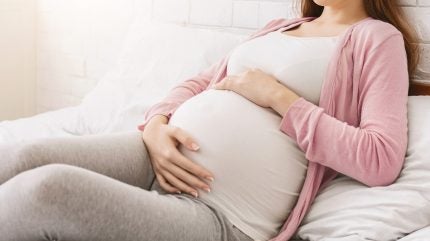
Molecular diagnostics company BillionToOne has reported outcomes from a US clinical study of its non-invasive prenatal test (NIPT) for determining the foetal RhD status.
The study showed a “100% accuracy” in its test, which is critical for RhD-negative pregnant people, who represent 15% of the US population.

Discover B2B Marketing That Performs
Combine business intelligence and editorial excellence to reach engaged professionals across 36 leading media platforms.
Its findings indicate that the company’s next-generation sequencing (NGS) with Quantitative Counting Template (QCT) technology can offer conclusive outcomes.
The study included all samples, even those with challenging variants such as RHDѰ and RHD-C-DE, which are typically excluded from other studies.
BillionToOne noted that the test showed “100%” specificity, sensitivity, positive predictive as well as negative predictive value across 401 pregnancies in comparison with the ground-truth neonatal RhD serology.
It is shown in the study that the test identified foetal RHDѰ variants, which are prevalent in roughly 25% of Black Rh-negative subjects, and RHD-CE-D hybrid variants.

US Tariffs are shifting - will you react or anticipate?
Don’t let policy changes catch you off guard. Stay proactive with real-time data and expert analysis.
By GlobalDataHealthcare providers have already begun to use the test results to guide RhoGAM administration, with a noted decrease in needless treatments for RhD-negative foetuses.
BillionToOne medical affairs vice-president Jennifer Hoskovec said: “This study provides compelling evidence that our QCT technology can revolutionise prenatal care for RhD-negative individuals in the US.
“Our approach accurately determines foetal RhD status even in the presence of complex genetic variants, representing a significant advancement over existing methodologies.”
This research comes after BillionToOne’s previous studies, which have been recognised in a recent clinical practice advisory update by the American College of Obstetricians and Gynecologists (ACOG).
It supported the use of non-invasive cell-free DNA screening for foetal RhD during the shortage of RhoGAM and as an alternative in alloimmunised pregnancies when there is a decline in amniocentesis, stated the company.
BillionToOne’s QCT molecular counting platform claims to be capable of accurately counting DNA molecules at the single-molecule level from as early as nine weeks gestation.
The company has so far performed RhD testing on 469 subjects as part of clinical validation studies and delivered more than 150,000 commercial RhD tests to individuals across the US.





